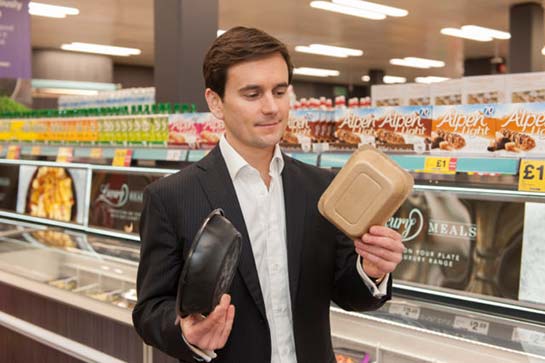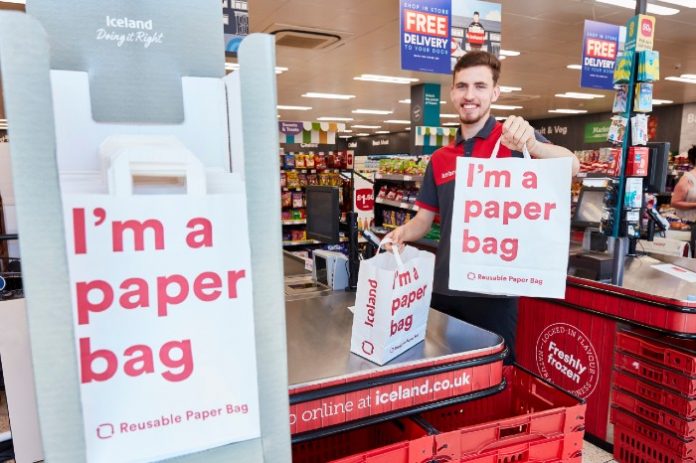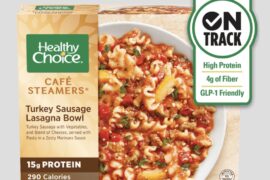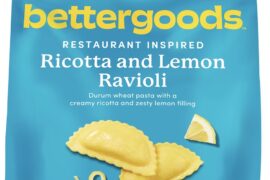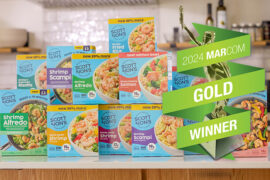Noting that this time last year Iceland was “basking in the warm glow” of being ranked Number One in the Greenpeace / EIA survey of supermarkets’ plastic habits spurred by the retail chain’s commitment to remove of all plastic packaging from its extensive range of own label products by the end of 2023, Managing Director Richard Walker has reflected on his company’s fall to seventh place in this year’s survey.
Partly this was the inevitable consequence of being on top in anything, as the only way is down, he speculated in a blog posted at the company’s website on November 28, before adding: “But much more importantly it is the result of other supermarkets catching up, grasping the baton and doing some really good things to address their plastic usage. I am incredibly proud of the role that we have played in raising public awareness and galvanizing this change right across the supermarket sector. Ours remains the boldest and bravest of all the supermarket pledges, and we remain single-mindedly focused on our end of 2023 commitment. While we don’t have absolutely all of the solutions yet, we are firmly on track against the metrics in our five-year plan.
“However, it is important to recognize that we have a different demographic to the new leaders in the survey. Our customers do care, but unlike Waitrose shoppers they don’t have the luxury of being able to spend more money. That’s why we have to be more innovative and invest in solutions without charging more at our tills. This is vital if we are to democratize environmentalism, as I believe we must.”
The managing director underscored that he has a duty to measure sustainability not only in terms of what is good for the environment, but also what is in the best interests of Iceland’s five million customers, 25,000-plus employees, and the long-term success of its business. Indeed, the company must remain profitable if it is to have the resources to continue “Doing It Right” for the planet.
Loose Fruits and Vegetables Trial Fails
“So when we ran a trial selling loose produce in one store earlier this year, and sales fell 30%, I swiftly concluded that this was not a sustainable solution for Iceland, though it may well work for others,” wrote Walker in the blog. “Our customers come to us for convenience and value, and we must respond to their needs. Our small, limited range high street stores don’t have the space for refill solutions for food and household products. We don’t have weighing facilities, and I certainly can’t justify investing millions in new tills and scales to offer something our customers don’t want to buy.
“We will look at ways to offer customers refills of their water bottles and we will continue working on plastic-free produce solutions, but selling loose cannot be the way forward for us.
The increases in plastic bottle and bag for life sales noted in the Greenpeace / EIA report are respectively the cause of puzzlement and regret. We opened 45 new stores in the UK last year, mainly larger units under our The Food Warehouse fascia, so our sales overall have gone up and bulk buy packs of small plastic branded water bottles were indeed a popular purchase. Even so, it seems literally incredible that Iceland, with 2.2% of the UK grocery market, sold half the number of plastic bottles shifted by Tesco, with a share more than 13 times greater. I think one of us needs to invest in some new batteries for our calculator.”
Walker added: “Soaring sales of ‘bags for life’ are the unintended consequence of stopping the sale of single-use 5p plastic carrier bags at our tills in October 2018. We assumed that offering a much stronger bag, made from recycled post-consumer waste, and doubling the price to 10p, would drive down demand in the same way that the introduction of the 5p charge led to an almost 90% reduction in bag usage. But it didn’t happen.
“Those who failed to change their shopping habits when the 5p charge came in continued buying 10p bags and using them just once – and the total weight of plastic involved went up. We have always been transparent about this and we will be rolling out an extra-strong paper carrier bag alternative next year – but paper too has an environmental cost, and in the long run the best answer is for consumers to learn to bring their own reusable bags when they go shopping, or face paying a more prohibitive charge if they don’t.”
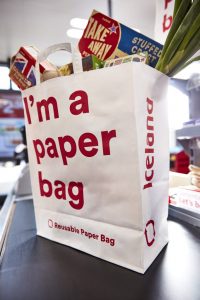
Since the Greenpeace / EIA survey results were compiled in the summer Iceland has made even more progress, pointed out the managing director “We have improved the recyclability and the labeling of our current packaging. We have moved 100 million frozen meal trays a year from black plastic to sustainable board-based alternatives, and will end all packing of own label lines in black plastic by the end of January 2020. We are continuing to work intently with our own label suppliers on solutions in other areas, and we have also written to more than 400 suppliers of branded products, urging them to work with us towards the goal of plastics removal.”
